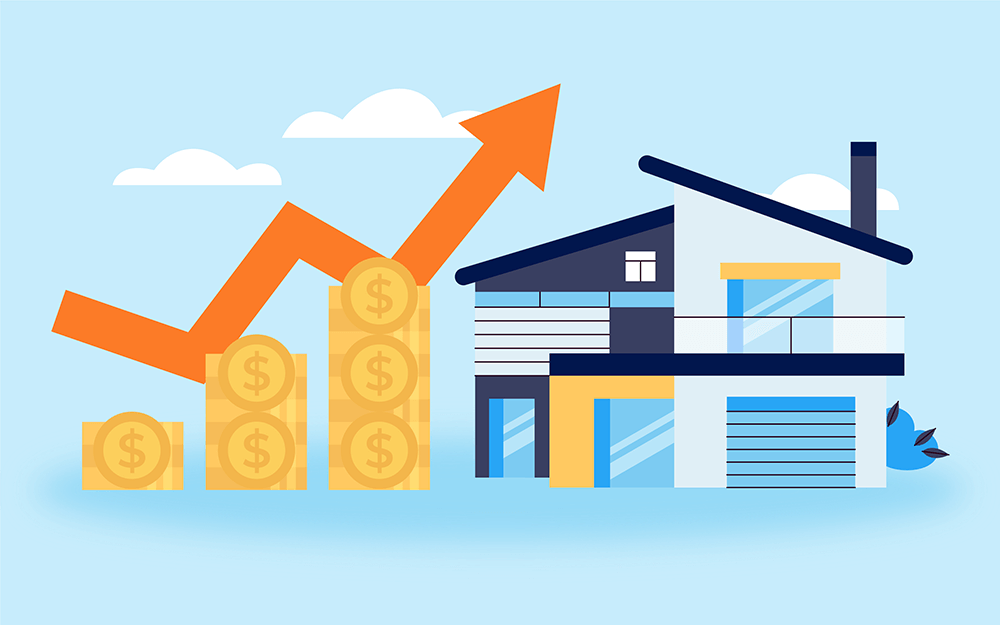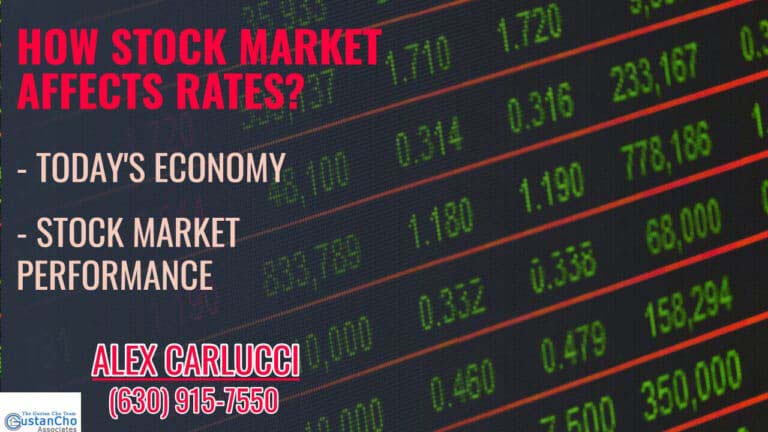Connection of Consumer Confidence and Inflation vs Rates
Understanding how consumer confidence and inflation vs rates is key to navigating the housing market. These factors are interconnected, influencing both borrowing costs and broader economic growth. Consumer confidence and inflation vs rates often reflects how individuals feel about their financial stability and the future of the economy. Inflation, on the other hand, relates to the rising costs of goods and services, which directly impacts interest rates. In this blog, we’ll explore how consumer confidence and inflation vs rates elements influence mortgage rates and the balance between economic growth and rate hikes. Inflation, interest rates, and consumer confidence—what a trifecta! In fact, they are the basis of every economic activity and move hand in hand. Here’s a rundown of the three elements mentioned above and how they impact one another:
The Role of Consumer Confidence and Inflation vs Rates in the Economy
Consumer confidence represents how optimistic or pessimistic people feel about their financial situations and the general state of the economy. High confidence typically suggests that consumers believe the economy is stable or improving, leading to increased spending and investments in large financial commitments like buying a home. Low confidence, however, indicates fear or uncertainty about the economy, resulting in more cautious spending behaviors and less appetite for big investments.
When consumer confidence is high, more people are willing to purchase homes and take out mortgages. This surge in demand for housing and mortgage loans puts upward pressure on interest rates as lenders respond to increased demand. When confidence is low, fewer people are looking to purchase homes, reducing the demand for mortgages and leading to lower interest rates as lenders try to attract borrowers.
How Consumer Confidence and Inflation vs Rates Ties into Confidence and Mortgage Rates
Inflation is a critical factor in determining mortgage interest rates. When inflation is high, the prices of goods and services rise, diminishing the purchasing power of money. This can lead the Federal Reserve and other central banks to raise interest rates in an attempt to slow down economic activity and keep inflation under control. Higher interest rates make borrowing more expensive, including for mortgages.
Consumer confidence can either accelerate or temper inflation. When people feel secure in their financial standing, they tend to spend more. This surge in consumer spending can fuel demand across various sectors, pushing prices up and contributing to inflation. The Federal Reserve may then respond with rate hikes to cool down spending and inflation. However, if consumer confidence falls due to concerns like job insecurity or rising living costs, spending declines, and inflationary pressure may ease, leading to lower interest rates.
Consumer Confidence and Inflation vs Rates: Interest Rates
- Definition: Interest rates are set by the Federal Reserve Bank, for example, in order to control inflation while at the same time promoting economic growth.
- Monetary Policy Tool: Policymakers are constantly to strive to keep inflation in check while ensuring the economy runs smoothly. Lowering interest rates mean encouraging people to borrow but also spending while raising rates do the complete opposite.
Consumer Confidence and Inflation vs Rates: Confidence
Let us begin with understanding two terms that often steam in the media or in forums. Consumer confidence and inflation. These words go hand in hand and their relationship is somewhat inverse. High consumer confidence would mean spending and investment but at the same time it may lead to inflation, whereas low consumer confidence would mean disinvestment and deepening recession. If high consumer spending cannot be met by supply, inflation and investment may occur.
- Definition: The phrase “Consumer Confidence” indicates hope that consumers or the general public have regarding the economy and their monetary matters.
- Impact on Spending: If a massive chunk of consumers possesses confidence, they are more likely to spend. Why? Because a thick wall of financial stability keeps them safe from job insecurities. But without that confidence, it’s lookout for some real knockdowns in spending and investment.
As a definition, consumer confidence is defined as the strength of confidence owing to the present economic climate. This act describes positive economic optimism and affordance of Ugo Raquel and El Shivan a sense of dismissal while spending. As a result, spending is reflective of greater quality than necessary, which may lead to inflation.
Consumer Confidence and Inflation vs Rates: Inflation
Let’s discuss inflation through the lens of interest rates and economic growth. Inflation solely breeds due to increased spending a dip in interest rates or increase in wages but crossing a certain point in regard to central banks and economic growth, they simply inflate products and services to maintain a cycle. One dollar in increase in inflation should never be done by spending 10 dollars. The interplay of inflation and increased Q-deficit in economic theory always leads to the coming of a recession. Low inflation, or real inflation, seeks to reduce interest rates while paying low on bonds but high on reserves.
- Definition: Inflation is an economic menace that consistently increases the amount of money for goods and services, decreasing how much one is able to or is willing to pay.
- Causes: Demand inflation and production cost inflation are the two main reasons that result in an increase in inflation across the globe, which results in the increase of the general commodity price.
High interest rates and economic recession prompt various means such as emission of bonds or increase some Q stocks in order to create a barrier which leads to the decrease in the interest rates. High price inflation, on the other hand, leads to high difficulty in borrowing and working capital. Low inflation, on the other hand, seeks to devalue currency, depreciating reserves.
Overview of Consumer Confidence and Inflation vs Rates
The correlation between the three key variables, consumer confidence and spending, inflation, and the national interest rate, is consistent: High levels of consumer confidence may result in spending, which in turn may increase inflation. Increased inflation may compel central banks to raise interest rates to manage inflation and, in the process, stir a lack of confidence among consumers due to increased costs of borrowing. High inflation levels may depress demand or consumers on full confidence in the markets, and therefore central banks limit costs in order to balance the central inflation rate, which generally increases the cost of borrowing. Understanding these interrelations is very important for all the stakeholders, as the orientation of their policies is ultracritical in the target economic conditions.
The Impact of Inflation Expectations on Mortgage Rates
Mortgage rates often rise or fall based on inflation expectations. If consumers and investors expect inflation to increase, lenders will typically raise mortgage interest rates to protect against the eroding value of future repayments. Higher inflation reduces the value of money over time, so lenders charge higher rates to ensure they receive adequate compensation for the risk of inflation.
When inflation expectations are low, mortgage interest rates tend to stay lower because lenders don’t see a need to protect themselves from rising prices. This creates a more favorable environment for borrowers, as mortgage rates remain affordable. Consumer confidence plays a significant role here because when confidence in the economy is high, inflation expectations might rise, leading to higher rates. On the contrary, when confidence is low, inflation expectations may fall, and rates could decrease accordingly.
Economic Growth Consumer Confidence and Inflation vs Rates: The Balancing Act
Balancing economic growth and interest rates is a delicate task for policymakers. When the economy is growing steadily, consumer confidence tends to rise, leading to more spending and borrowing. This growth often brings inflationary pressures as demand for goods and services increases, prompting central banks to raise interest rates to keep inflation in check.
Rate hikes can cool down an overheating economy by making borrowing more expensive, which dampens consumer spending and reduces inflation. However, these rate increases also make mortgages more costly, potentially reducing demand for home loans and slowing down the housing market. On the flip side, if the economy slows too much, consumer confidence can falter, inflation pressures ease, and central banks might lower rates to stimulate borrowing and spending.
How to Navigate Mortgage Decisions in Fluctuating Conditions
For both homebuyers and mortgage professionals, understanding how consumer confidence and inflation influence interest rates is vital for making informed decisions. During periods of high consumer confidence and inflation, mortgage rates are likely to rise. This could be a signal to lock in a mortgage rate before it increases further. On the other hand, when consumer confidence dips and inflation expectations fall, mortgage rates may decrease, offering a favorable window for borrowing. Monitoring economic trends and consumer sentiment can provide valuable insight into when it’s best to buy or refinance a home. Lenders adjust their rates in response to these fluctuations, making it essential for borrowers to stay informed and time their decisions carefully.
In Summary of Consumer Confidence and Inflation vs Rates
The conclusion is discussing negative TPS qualitative attributes for recessions. As mentioned before, weak consumer confidence leads to an increase in slow spending, and as a result, recession ensues. After all, recessionary assemblies are counterproductive and rarely motivate future consumption and investment politics. Increased Borrowing Rates and Cautions: On the other hand, if the cost of rates goes too high, the consumers will tend to hold off owing to the limits, potential costs, and impacts on their positions, and as such, this may lower their confidence and their spending. Consumer confidence, inflation, and mortgage interest rates are interconnected forces that shape the housing market and broader economic trends. High consumer confidence can fuel inflation, leading to rate hikes, while low confidence can ease inflationary pressure, resulting in lower interest rates. Understanding the relationship between these factors helps both borrowers and professionals navigate the complexities of the mortgage market, making better-informed decisions about home purchases, refinancing, and investment timing.







